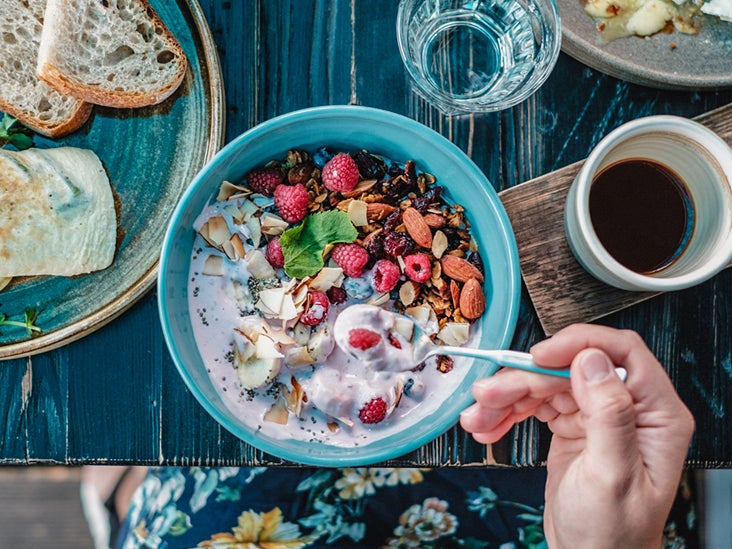Written by Rachael Link, MS, RD
Updated on July 31, 2019
The Ayurvedic diet is an eating pattern that’s been around for thousands of years.
It’s based on the principles of Ayurvedic medicine and focuses on balancing different types of energy within your body, which is said to improve health.
Unlike many other diets, the Ayurvedic diet provides personalized recommendations about which foods to eat and avoid based on your body type.
It’s also popular because it’s not only said to promote better health for your body but also your mind.
This article reviews all you need to know about the Ayurvedic diet, including its benefits, downsides, and foods to eat and avoid.
What is the Ayurvedic diet?
Ayurveda is a form of holistic medicine that’s focused on promoting balance between your body and mind.
According to Ayurveda, five elements make up the universe — vayu (air), jala (water), akash (space), teja (fire), and prithvi (earth).
These elements are believed to form three different doshas, which are defined as types of energy that circulate within your body. Each dosha is responsible for specific physiological functions.
For example, the pitta dosha controls hunger, thirst, and body temperature. Meanwhile, the vata dosha maintains electrolyte balance and movement, while the kapha dosha promotes joint function.
The Ayurvedic diet is a component of Ayurveda and has been practiced for thousands of years. It’s based on determining your dominant dosha and eating specific foods to promote balance between all three doshas.
How does it work?
The Ayurvedic diet is a type of eating plan that sets guidelines for when, how, and what you should eat based on your dosha, or body type.
Here are some of the main characteristics for each dosha to help you determine which type matches you best:
- Pitta (fire + water). Intelligent, hard-working, and decisive. This dosha generally has a medium physical build, short temper, and may suffer from conditions like indigestion, heart disease, or high blood pressure.
- Vata (air + space). Creative, energetic, and lively. People with this dosha are usually thin with a light frame and may struggle with digestive issues, fatigue, or anxiety when out of balance.
- Kapha (earth + water). Naturally calm, grounded, and loyal. Those with a kapha dosha often have a sturdier frame and may have issues with weight gain, asthma, depression, or diabetes.
According to this diet, your dosha determines which foods you should eat to promote inner balance.
For example, the pitta dosha focuses on cooling, energizing foods and limits spices, nuts, and seeds.











